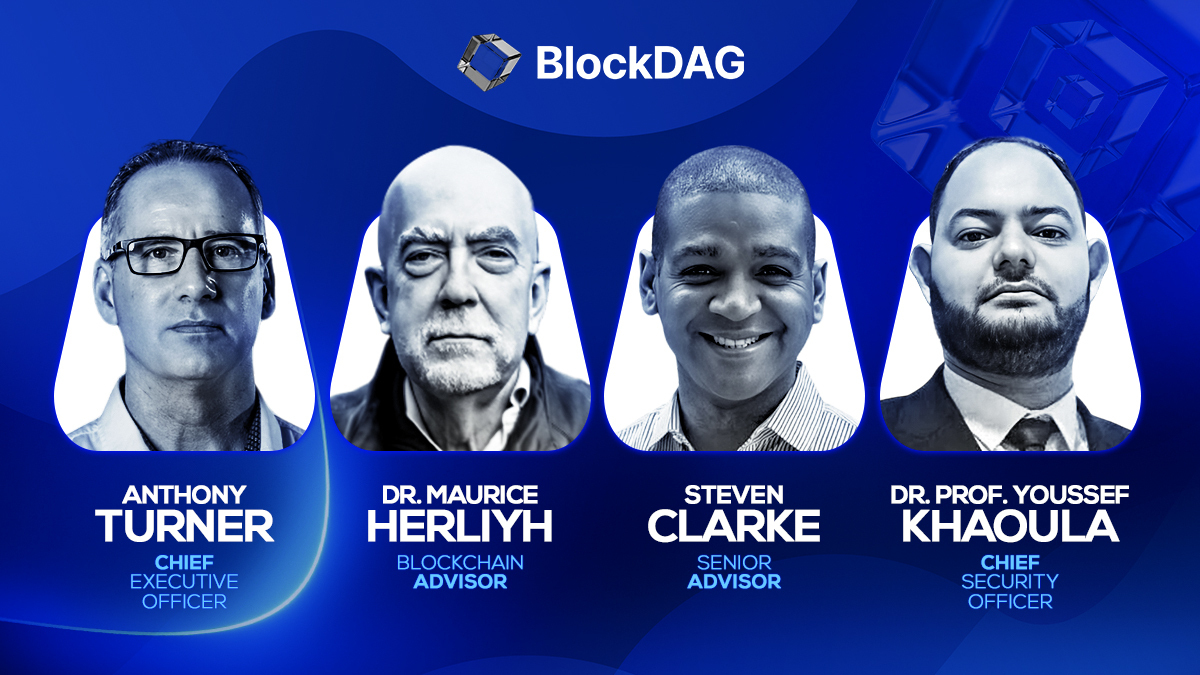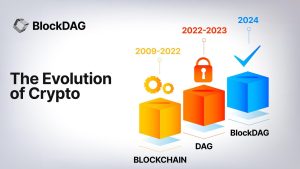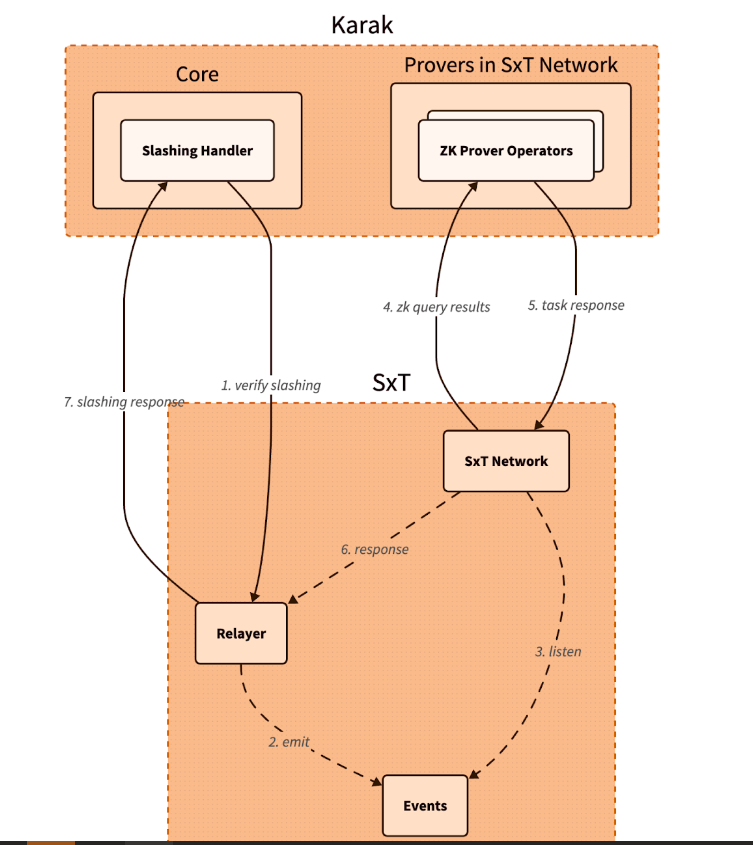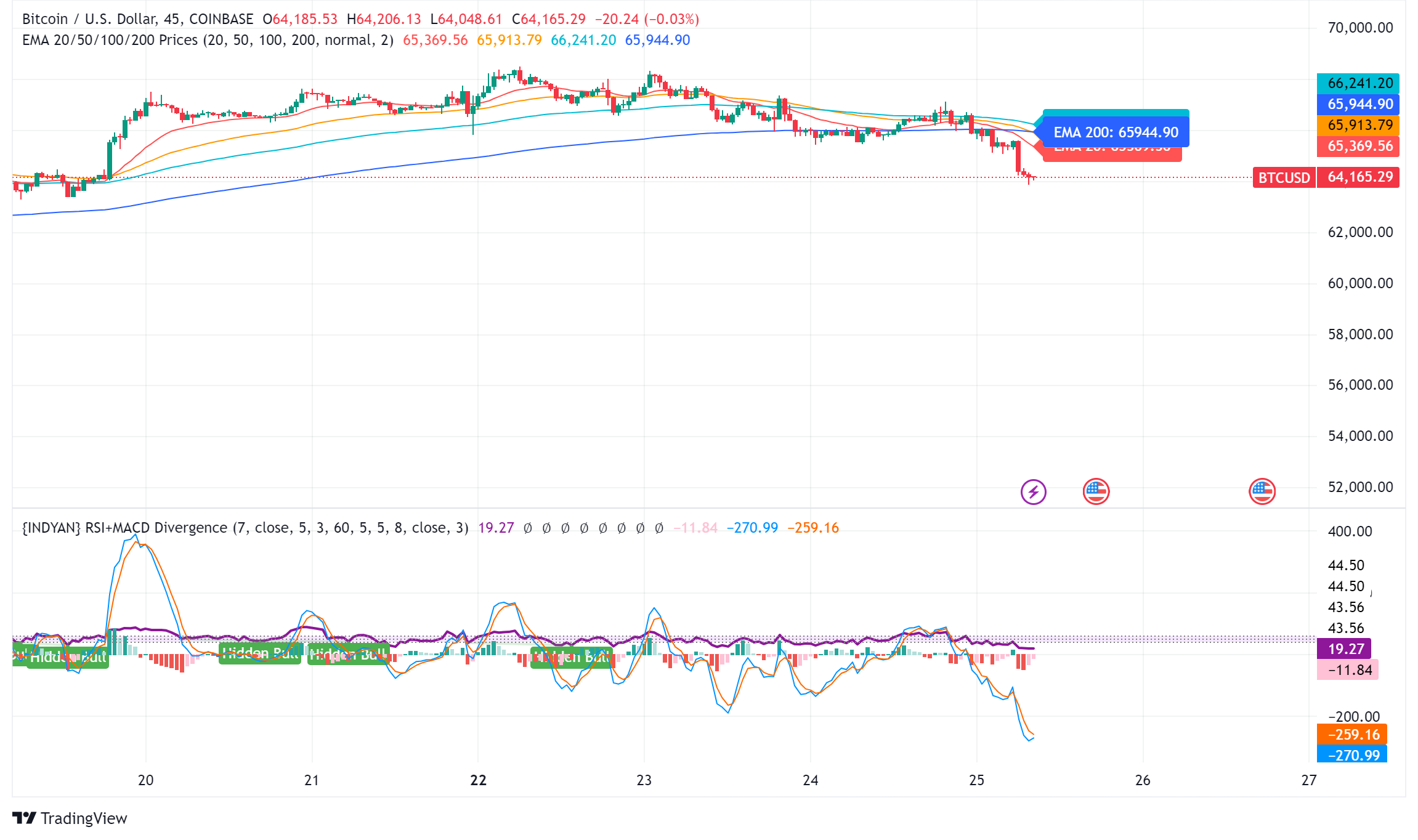Tech
The Latest Tech News in Crypto and Blockchain

March 6: Prediction market PredX, an AI-enabled event exchange, launched its testnet on the Sei blockchain, allowing members of the PredX community the ability to exchange their opinions on current trends and events and buy shares based on the likelihood of specific outcomes, according to the team: “PredX uses an original AI algorithm to customize event suggestions according to users’ preferences in order to boost engagement while equipping users with the insights needed for making more informed decisions. PredX recently achieved a $40 million valuation following a successful pre-seed round in February led by Penrose Tech.”
Toucan, Bridging Protocol for Tokenizing Carbon Credits, Launches Biochar Market on Celo
March 6: Toucan, a bridging protocol that tokenizes carbon credits has launched the first-ever liquid market for biochar credits on the Celo blockchain, according to the team: “Toucan’s infrastructure for the automated, on-demand buying and selling of biochar carbon credits (readily available and highly permanent carbon removal) is built in partnership with Puro.earth, American BioCarbon, Celo, and more. CHAR is based on open infrastructure and aggregates verified CO2 Removal Certificates issued by Puro.earth (“CORCs”) on a single platform, bringing speed and scale to carbon markets.”
Synnax, Protocol for AI-Driven Credit Ratings, Raises $1M
March 6: Synnax, a protocol that generates AI-driven credit intelligence and ratings for the digital asset industry, announced a $1 million pre-seed funding round, led by No Limit Holdings. According to the team: “By leveraging advanced encryption, blockchain and decentralized AI, Synnax’s technology-driven concept includes secure data exchange protocols to maintain data privacy, while a unique decentralized consensus mechanism generates unbiased and predictive credit ratings and intelligence for issuers of on-chain debt and tokenized assets.”
Web3 App Store Magic Square Unveils $66M Grant Program
March 6: Web3 app store Magic Square is dedicating $66 million worth of its native SQR token for grants to projects listed on its platform. The Ecosystem Grant Program consists of 120 million SQR, equivalent to 12% of the token’s total supply, according to an emailed announcement shared with CoinDesk on Wednesday.
Protocol Village is a regular feature of The Protocol, our weekly newsletter exploring the tech behind crypto, one block at a time. Sign up here to get it in your inbox every Wednesday. Project teams can submit updates here. For previous versions of Protocol Village, please go here. Also please check out our weekly The Protocol podcast.
Stacks Says Blockdaemon, NEAR, 6 Other Industry Players Join as Signers
March 5: Stacks, a Bitcoin layer-2 network, has integrated eight new industry players into its network. According to the Stacks Foundation team: “Blockdaemon, NEAR Foundation, DeSpread and others will join as new Signers of Stacks’ open and decentralized network, allowing them to participate with its wider ecosystem of validators in signing new blocks. This commitment reflects their dedication to fostering innovation within the Bitcoin ecosystem, paving the way for more developments and applications.”
Crypto AI Startup Sahara Raises $6M to Reward AI Trainers
March 5: Sahara, the latest startup to blend the worlds of crypto and artificial intelligence, says it can help workers and companies get compensated for their knowledge, expertise and data in the age of AI. The Los Angeles-based startup has raised $6 million in a seed funding round led by Polychain Capital. The round also included participation from Samsung Next, Matrix Partners, Motherson Group and Sandeep Nailwal, co-founder of the Polygon blockchain ecosystem. The project was co-founded by Sean Ren, an AI researcher and tenured member of the school’s computer science faculty at the University of Southern California (USC).
Polygon Lands Astar Network as First User of New ‘AggLayer’
Symbiosis, Cross-Chain DEX, Integrates With Bitcoin Layer-2 Rootstock
March 5: Symbiosis, a cross-chain AMM DEX compatible with Ethereum’s EVM runtime as well as WASM (NEAR), has integrated with Rootstock, a Bitcoin layer-2 network, marking “a significant leap in blockchain interoperability, especially enhancing Bitcoin’s connectivity with the crypto ecosystem,” according to the team: “This strategic alliance revolutionizes cross-chain swaps, ensuring seamless, secure transactions across top blockchains like Ethereum, Avalanche, BNB and more.”
Fetch.ai Unveils ‘Fetch Compute,’ a $100M Project for AI Development
March 5: Fetch.ai unveiled its new Fetch Compute, a $100 million project fueling AI development with Nvidia graphics processing units (GPUs), according to the team: “This major infrastructure investment secures the expansion of the tools and training capabilities available to its users and developers. Backed by the Fetch Ecosystem Fund, this initiative aims to address GPU scarcity, empowering developers worldwide to create advanced applications and drive innovation within the AI economy.”
Utila, Enterprise-Grade MPC Wallet, Gets $11.5M in Seed Funding
March 5: Utila, an enterprise-grade crypto operations platform and MPC wallet provider, announced $11.5M in seed funding from NFX, Wing VC Framework Ventures and other leading Web3 and fintech VC funds and prolific angel investors including Balaji Srinivasan, Charlie Songhurst and Surojit Chatterjee.
Fireblocks Appoints Snyk’s Michal Ferguson as Chief Marketing Officer
March 5: Fireblocks, a crypto custody technology firm, announced the appointment of Michal Ferguson as chief marketing officer (CMO), “a strategic move to capitalize on growing market opportunities and address demand for secure, scalable blockchain solutions,” according to the team: “Having spent a decade in tech, Ferguson joins the team from Snyk where she focused on building and scaling go-to-market functions. In her new role at Fireblocks, Ferguson will focus her immediate efforts on amplifying the organization’s pipeline of product launches geared toward institutional trading and mass adoption within the financial sector.”
Crypto Payments Specialist Baanx Raises $20M Funding Round
March 5: Baanx, a cryptocurrency payments specialist authorized by the U.K.’s Financial Conduct Authority (FCA), has raised a $20 million Series A funding round, the company said on Tuesday. The investment round, which included Ledger, Tezos Foundation, Chiron and British Business Bank, brings the crypto payment enabler’s total funding to over $30 million.
Io.net, Decentralized Network for GPU Compute, Raises $30M
March 5: Io.net, a decentralized network for GPU compute, announced a $30M funding round led by Hack VC. Among other participants: Multicoin Capital, Delphi Digital, Solana Labs, Aptos Labs, OKX and more.”
Stacks Developer Trust Machines Launches ‘Orange Domains’ With Tucows, Hiro
March 4: Trust Machines, a contributor to Bitcoin projects including layer-2 Stacks, started a joint venture with the publicly traded company Tucows to introduce “Orange Domains,” according to a post on X by CEO Muneeb Ali. The new entity “will expand the functionality of the Bitcoin Name System (BNS) through decentralized apps, as well as develop new top-level domain (TLD) services to better connect the traditional Domain Names System (DNS) with Web3 digital identities,” according to a press release. “The Web3 domain will function as a digital identity and act like an NFT, providing the keys to an equivalent domain for everyday internet users. This will enable anyone to build a website, send an email, secure finances, art, contracts and more, from one single-domain solution on the blockchain.” Bitcoin developer tooling company Hiro Systems “will provide domain expertise on building Bitcoin smart contracts, digital assets, and decentralized applications.”
Stack Raises $3M from VCs Including Archetype, Coinbase Ventures
March 4: Stack, a platform for creating and managing point systems, has raised $3M from Archetype, Coinbase Ventures and other VCs and angels to bring points, loyalty programs and identity primitives on-chain, according to the team: “Stack’s Typescript SDK enables teams to implement these point and loyalty systems seamlessly into their products with features like event-based point assignments, cross-chain token redemptions, leaderboards, analytics and GraphQL APIs.”
ZkLink Launches ‘First Aggregated Layer-3 zkEVM’
March 4: ZkLink, a zero-knowledge layer-3 infrastructure provider, announced the launch of zkLink Nova, claiming it’s “the industry’s first aggregated layer-3 zkEVM rollup network,” based on zkSync’s ZK Stack and zkLink Nexus, according to the team: “Vince Yang, CEO of zkLink, commented on the news, ‘For too long, the lack of interoperability between chains has stunted innovation and adoption. With Nova, we are pioneering the concept of an Aggregated Layer 3 that unifies liquidity and development across Ethereum and layer-2 blockchains.'”
Boson Developing Second Protocol ‘Fermion’ for On-Chain Exchange of Watches, Vintage Wine
March 4: Boson Protocol, a decentralized actuator oracle founded by Justin Banon to tokenize commerce products from point of sale to redemption, is developing a second protocol, Fermion, to enable on-chain exchange of high-value physical real-world assets (RWAs) such as watches, vintage wine and fine art, according to a press release. “Fermion is designed to meet the high verification requirements of physical RWAs with a fundamentally different protocol design that incorporates trusted verifiers and custodians.” The core Boson protocol runs on EVM-compatible blockchains such as Ethereum, Polygon or Gnosis, uses indexing from The Graph and relies on data “stored in an immutable decentralized file system such as IPFS,” according to the project documentation.
Ankr to Create Liquid Staking Tokens for Bitcoin Staked via Babylon
March 2: Babylon, builder of protocols for Bitcoin blockchain timestamping and bitcoin staking, announced a collaboration with Ankr, a Web3 infrastructure company, to bring security and liquidity to proof-of-stake (PoS chains), according to the team: “Ankr will create liquid staking tokens (LSTs) for the bitcoin staked via Babylon. The LSTs will then be issued on PoS chains secured by the BTC staking protocol. For stakers, this means their BTC will be locked on the bitcoin blockchain while new LSTs are minted on the PoS chain they chose to provide security for. Ankr will also run validators on Babylon’s testnet and build advanced security infrastructure to support Babylon’s nodes and finality providers.” CoinDesk 20 asset: (BTC)
Worldcoin Developer Tools for Humanity Acquires Crypto Wallet Ottr
March 2: Ottr, a crypto wallet powered by Solana, announced its team is joining Tools For Humanity (TFH), a primary contributor to the Worldcoin project, to lead development of TFH’s user-friendly mobile wallet, World App, used by over 3 million people monthly, according to the team: “Since launching Ottr Wallet 18 months ago, the Ottr team developed a self-custody wallet with seamless integration with U.S. bank accounts, gas-free transfers and trading, passwordless cloud backups and a comprehensive dApp store. Now, they’ll bring their expertise to TFH to help provide more people with access to the digital economy.”
Wormhole Reveals ‘Native Token Transfers’ to Be ‘Simpler’ Than Wrapped Assets
March 2: Wormhole, a protocol for communication between blockchains, just revealed “Wormhole Native Token Transfers,” a new framework for making any token multichain, securely and efficiently, according to the team: “NTT introduces an open, flexible, and composable framework for transferring native tokens across blockchains while preserving their intrinsic properties. Compared to wrapped assets, NTT is simpler, decentralized, marking a significant stride forward for interoperability. Projects built on NTT retain control over their tokens’ behavior on each chain, including customizability, metadata and ownership/upgradeability.” According to a blog post, NTT is “powering natively multichain tokens for industry-leading projects like Lido, ether.fi, Puffer Finance, PIKE and Wormhole.”
Bitcoin Layer-2 Project BOB Announces ‘ETH-Settled Rollup,’ Plans Launch Around Halving
March 2: BOB, a Bitcoin layer-2 blockchain project, announced its innovative hybrid solution between Bitcoin and Ethereum at their “Bitcoin Renaissance” event, a side event of ETHDenver attended by 1,500 individuals, according to the team: “This solution introduces an ETH-settled rollup that leverages an advanced merged mining technique to inherit Bitcoin’s PoW security. Looking ahead, BOB plans to enable settlements on both Bitcoin, via BitVM, and Ethereum. The project also revealed that its mainnet launch is timed to coincide with the upcoming Bitcoin halving.” CoinDesk 20 asset: (BTC)
Taiko, an ‘Ethereum-Equivalent ZK Rollup,’ Raises $15M
March 2: Taiko, a layer-2 scaling solution provider for the Ethereum blockchain, has raised $15 million in a series A funding round, adding to the growing amount of investment allocations to crypto projects from venture-capital firms. The fundraise was led by Lightspeed Faction, Hashed, Generative Ventures and Token Bay Capital, according to a press release. Other investors in the round included Wintermute Ventures, Presto Labs, Flow Traders, Amber Group, OKX Ventures, GSR and WW Ventures. The latest round brings Taiko’s total fundraising across three rounds to $37 million.
Clone Markets, Clone Liquidity Mainnet Launched March 1
March 2: Clone, an open-source protocol for trading non-native tokens on the Solana blockchain, has announced the public mainnet launch of Clone Markets and Clone Liquidity launched on March 1, according to the team: “The launch will introduce highly liquid markets for non-native assets via Clone’s innovative “cloned assets” (clAssets), creating a more seamless, efficient and accessible trading environment for Solana users. Arbitrum, Optimism and Sui’s network tokens will be available to trade with deep liquidity on Solana for the first time.”
Renzo, Liquid Restaking Protocol, Expands to Arbitrum in Deal With Connext
March 1 (PROTOCOL VILLAGE EXCLUSIVE): Renzo, a liquid restaking protocol, has partnered with Connext to bring cross-chain restaking for Arbitrum, according to the team: “This now enables cross-chain restaking for multiple L2 networks, including BNB Chain, Linea, Base and now the Arbitrum network. Due to the lower fees rollups provide, users on L2s that have partnered with Renzo now provide restaking at a fraction of the cost while also allowing users to restake ETH on their supported network of choice. Renzo and Connext achieve this with ezETH, with EigenLayer leveraging Connext’s bridging and message-passing protocol to transfer ERC-20 with no slippage.”
Layer-2 Network Metis Integrates Chainlink CCIP as Canonical Token Bridge
Feb. 29: Metis, an Ethereum layer-2 network, plans to integrate Chainlink’s interoperability solution, Chainlink CCIP, “as its canonical token bridge infrastructure, enabling the Metis ecosystem to expand its cross-chain footprint, enhance user and developer experience and accelerate adoption,” according to the team. “As a part of this integration, the Metis bridge interface will be upgraded to leverage Chainlink CCIP as the official cross-chain infrastructure to power the canonical Metis token bridge, with an initial focus on bridging leading stablecoins from Ethereum mainnet onto the Metis network.” CoinDesk 20 asset: {{LINK}}
Alchemy Launches ‘Embedded Accounts’ to Onboard Users to Web3
Feb. 29 (PROTOCOL VILLAGE EXCLUSIVE): Alchemy is launching Embedded Accounts, “the easiest way to onboard users to Web3, according to the team. “It’s a simple all-in-one solution to:
1. Onboard users with Web2 login (email, passkeys, and soon social auth)
2. Transact with zero friction. One-click checkout by sponsoring gas and batching tx
3. Build custom smart accounts with account recovery, multisig, session keys and more
Our mission at Alchemy is to onboard the whole world to self-sovereign Web3 accounts. To achieve this mission, wallets must become invisible by abstracting away the tech such that the user doesn’t even know they’re using a wallet.”
Max Howell’s Tea Protocol Aims to Address Challenges in OSS Development
Feb. 29: Tea Protocol, founded by Max Howell, the creator of Homebrew’s open-source software package management, said that his “latest project leverages blockchain technology to address longstanding challenges in OSS development, marking a significant step towards a more sustainable and equitable ecosystem for software creators.” According to the team, Tea is “at the forefront of supporting OSS development through Web3 technology. This innovative approach ensures transparent and fair compensation for developers, enhancing collaboration and innovation within the open-source community.”
QuickNode Launches Real-Time Blockchain Data Solution ‘Streams’
Feb. 29: QuickNode, a Web3 development platform, is launching “Streams,” a real-time blockchain data streaming solution, aiming to revolutionize blockchain infrastructure by providing instant access to historical and real-time data from Ethereum, Polygon and Binance Smart Chain, according to the team: “Streams empowers developers with popular programming languages, bridging the gap between blockchain data and conventional tools, reducing operational costs and expediting time-to-market for decentralized applications (dApps).”
Crypto Losses From Hacks, Rug Pulls Up 15% YTD, Immunefi Says
Feb. 29: Immunefi, a bug bounty and security services platform for Web3 protecting over $60 billion in assets, released its “Crypto Losses in February 2024” report, showing a loss of $200.5 million to hacks and rug pulls in 2024 year-to-date, a 15.4% increase when compared with the same period in 2023. For the month of February alone, some $67.1 million was lost due to hacks and rug pulls, with the most targeted chain being Ethereum. Hacks continued to be the predominant cause of losses, accounting for $65.4 million, compared to fraud.
Bitcoin Miner Marathon, Plans ‘Anduro,’ a Multi-Chain Layer-2
Feb. 29: Marathon Digital Holdings, a publicly-traded bitcoin mining firm, disclosed it has been incubating Anduro, a new programmable, multi-chain layer-2 network atop the Bitcoin blockchain. It’s a “platform built on the Bitcoin network that allows for the creation of multiple sidechains,” according to a press release. “Marathon is already developing the first two sidechains on Anduro, Coordinate and Alys, which can be further developed by open-source contributors. These chains demonstrate Anduro’s flexible programmability. Coordinate offers a cost-effective UTXO stack for the Ordinals community, whereas Alys is an Ethereum-compatible chain for institutional asset tokenization. Anduro’s sidechains utilize a process called merge-mining. Participating miners, like Marathon, may be able to earn Bitcoin-denominated revenue from transactions that occur on Anduro’s sidechains while continuing to mine bitcoin on the base-layer uninterruptedly.”
ZkHub, Powered ZkLink, Claims Ethereum’s First Multi-Rollup DEX to Offer Central Limit Order Book
Feb. 29: The team from ZkLink, a multi-chain ZK rollup and layer-3 protocol, announces that zkHub has built a multi-rollup orderbook decentralized exchange (DEX) based on ZK technology, to address difficulties when navigating between layer-2 rollups, such as high transaction costs, security issues and operational complexity. “ZkHub is Ethereum’s first multi-rollup DEX to offer users a high-performance Central Limit Order Book (CLOB) with multi-chain native asset support, low transaction fees and Ethereum grade security,” according to a blog post.
Coinbase Adds ‘Smart Wallet’ Feature, So Lengthy Seed Phrases Aren’t Needed
Feb. 29: Coinbase, the publicly traded U.S. cryptocurrency exchange, is coming out with two new wallet solutions that are supposed to make the onboarding of new users into crypto easier. The features, known as their smart wallet and embedded wallets, aim to overcome hurdles that often come with the clunky user experience when creating crypto wallets.
Shiba Inu Adopts Tech to Bring More Privacy to SHIB Token Holders
Feb. 29: Shiba Inu plans to introduce a new privacy-focused network on top of the Shibarium blockchain in a move that boosts the value proposition of SHIB tokens, a representative shared with CoinDesk in a release on Wednesday. Shiba Inu is working with open-source cryptography company Zama on the as-yet-unnamed network. The network will use Fully Homomorphic Encryption (FHE) – a privacy tool that lets developers use data on untrusted domains without needing to decrypt it. (SHIB)
Rarible, NFT Infrastructure Provider, Launches ‘Rarible API’
Feb. 29: Rarible, a provider of real-time infrastructure for NFT wallets, games and marketplaces, launched “Rarible API,” which is “designed to simplify the complex nature of building in the NFT space,” according to the team: “It offers a comprehensive set of features, meeting the ever evolving needs of the Web3 ecosystem, including a real-time NFT indexer, aggregated order book, multi-chain support and trading SDK. Built with developers and creators in mind, Rarible API provides a robust infrastructure, enabling and inspiring the invention of future NFT experiences.
Tech
Harvard Alumni, Tech Moguls, and Best-Selling Authors Drive Nearly $600 Million in Pre-Order Sales

BlockDAG Network’s history is one of innovation, perseverance, and a vision to push the boundaries of blockchain technology. With Harvard alumni, tech moguls, and best-selling authors at the helm, BlockDAG is rewriting the rules of the cryptocurrency game.
CEO Antony Turner, inspired by the successes and shortcomings of Bitcoin and Ethereum, says, “BlockDAG leverages existing technology to push the boundaries of speed, security, and decentralization.” This powerhouse team has led a staggering 1,600% price increase in 20 pre-sale rounds, raising over $63.9 million. The secret? Unparalleled expertise and a bold vision for the future of blockchain.
Let’s dive into BlockDAG’s success story and find out what the future holds for this cryptocurrency.
The Origin: Why BlockDAG Was Created
In a recent interview, BlockDAG CEO Antony Turner perfectly summed up why the market needs BlockDAG’s ongoing revolution. He said:
“The creation of BlockDAG was inspired by Bitcoin and Ethereum, their successes and their shortcomings.
If you look at almost any new technology, it is very rare that the first movers remain at the forefront forever. Later incumbents have a huge advantage in entering a market where the need has been established and the technology is no longer cutting edge.
BlockDAG has done just that: our innovation is incorporating existing technology to provide a better solution, allowing us to push the boundaries of speed, security, and decentralization.”
The Present: How Far Has BlockDAG Come?
BlockDAG’s presale is setting new benchmarks in the cryptocurrency investment landscape. With a stunning 1600% price increase over 20 presale lots, it has already raised over $63.9 million in capital, having sold over 12.43 billion BDAG coins.
This impressive performance underscores the overwhelming confidence of investors in BlockDAG’s vision and leadership. The presale attracted over 20,000 individual investors, with the BlockDAG community growing exponentially by the hour.

These monumental milestones have been achieved thanks to the unparalleled skills, experience and expertise of BlockDAG’s management team:
Antony Turner – Chief Executive Officer
Antony Turner, CEO of BlockDAG, has over 20 years of experience in the Fintech, EdTech, Travel and Crypto industries. He has held senior roles at SPIRIT Blockchain Capital and co-founded Axona-Analytics and SwissOne. Antony excels in financial modeling, business management and scaling growth companies, with expertise in trading, software, IoT, blockchain and cryptocurrency.
Director of Communications
Youssef Khaoulaj, CSO of BlockDAG, is a Smart Contract Auditor, Metaverse Expert, and Red Team Hacker. He ensures system security and disaster preparedness, and advises senior management on security issues.

advisory Committee
Steven Clarke-Martin, a technologist and consultant, excels in enterprise technology, startups, and blockchain, with a focus on DAOs and smart contracts. Maurice Herlihy, a Harvard and MIT graduate, is an award-winning computer scientist at Brown University, with experience in distributed computing and consulting roles, most notably at Algorand.
The Future: Becoming the Cryptocurrency with the Highest Market Cap in the World
Given its impressive track record and a team of geniuses working tirelessly behind the scenes, BlockDAG is quickly approaching the $600 million pre-sale milestone. This crypto powerhouse will soon enter the top 30 cryptocurrencies by market cap.
Currently trading at $0.017 per coin, BlockDAG is expected to hit $1 million in the coming months, with the potential to hit $30 per coin by 2030. Early investors have already enjoyed a 1600% ROI by batch 21, fueling a huge amount of excitement around BlockDAG’s presale. The platform is seeing significant whale buying, and demand is so high that batch 21 is almost sold out. The upcoming batch is expected to drive prices even higher.

Invest in BlockDAG Pre-Sale Now:
Pre-sale: https://purchase.blockdag.network
Website: https://blockdag.network
Telegram: https://t.me/blockDAGnetwork
Discord: Italian: https://discord.gg/Q7BxghMVyu
No spam, no lies, just insights. You can unsubscribe at any time.
Tech
How Karak’s Latest Tech Integration Could Make Data Breaches Obsolete

- Space and Time uses zero-knowledge proofs to ensure secure and tamper-proof data processing for smart contracts and enterprises.
- The integration facilitates faster development and deployment of Distributed Secure Services (DSS) on the Karak platform.
Karak, a platform known for its strong security capabilities, is enhancing its Distributed Secure Services (DSS) by integrating Space and Time as a zero-knowledge (ZK) coprocessor. This move is intended to strengthen trustless operations across its network, especially in slashing and rewards mechanisms.
Space and Time is a verifiable processing layer that uses zero-knowledge proofs to ensure that computations on decentralized data warehouses are secure and untampered with. This system enables smart contracts, large language models (LLMs), and enterprises to process data without integrity concerns.
The integration with Karak will enable the platform to use Proof of SQL, a new ZK-proof approach developed by Space and Time, to confirm that SQL query results are accurate and have not been tampered with.
One of the key features of this integration is the enhancement of DSS on Karak. DSS are decentralized services that use re-staked assets to secure the various operations they provide, from simple utilities to complex marketplaces. The addition of Space and Time technology enables faster development and deployment of these services, especially by simplifying slashing logic, which is critical to maintaining security and trust in decentralized networks.

Additionally, Space and Time is developing its own DSS for blockchain data indexing. This service will allow community members to easily participate in the network by running indexing nodes. This is especially beneficial for applications that require high security and decentralization, such as decentralized data indexing.
The integration architecture follows a detailed and secure flow. When a Karak slashing contract needs to verify a SQL query, it calls the Space and Time relayer contract with the required SQL statement. This contract then emits an event with the query details, which is detected by operators in the Space and Time network.
These operators, responsible for indexing and monitoring DSS activities, validate the event and route the work to a verification operator who runs the query and generates the necessary ZK proof.
The result, along with a cryptographic commitment on the queried data, is sent to the relayer contract, which verifies and returns the data to the Karak cutter contract. This end-to-end process ensures that the data used in decision-making, such as determining penalties within the DSS, is accurate and reliable.
Karak’s mission is to provide universal security, but it also extends the capabilities of Space and Time to support multiple DSSs with their data indexing needs. As these technologies evolve, they are set to redefine the secure, decentralized computing landscape, making it more accessible and efficient for developers and enterprises alike. This integration represents a significant step towards a more secure and verifiable digital infrastructure in the blockchain space.
Website | X (Twitter) | Discord | Telegram
No spam, no lies, just insights. You can unsubscribe at any time.
Tech
Cryptocurrency Payments: Should CFOs Consider This Ferrari-Approved Trend?

Iconic Italian luxury carmaker Ferrari has announced the expansion of its cryptocurrency payment system to its European dealer network.
The move, which follows a successful launch in North America less than a year ago, raises a crucial question for CFOs across industries: Is it time to consider accepting cryptocurrency as a form of payment for your business?
Ferrari’s move isn’t an isolated one. It’s part of a broader trend of companies embracing digital assets. As of 2024, we’re seeing a growing number of companies, from tech giants to traditional retailers, accepting cryptocurrencies.
This change is determined by several factors:
- Growing mainstream adoption of cryptocurrencies
- Growing demand from tech-savvy and affluent consumers
- Potential for faster and cheaper international transactions
- Desire to project an innovative brand image
Ferrari’s approach is particularly noteworthy. They have partnered with BitPay, a leading cryptocurrency payment processor, to allow customers to purchase vehicles using Bitcoin, Ethereum, and USDC. This satisfies their tech-savvy and affluent customer base, many of whom have large digital asset holdings.
Navigating Opportunities and Challenges
Ferrari’s adoption of cryptocurrency payments illustrates several key opportunities for companies considering this move. First, it opens the door to new customer segments. By accepting cryptocurrency, Ferrari is targeting a younger, tech-savvy demographic—people who have embraced digital assets and see them as a legitimate form of value exchange. This strategy allows the company to connect with a new generation of affluent customers who may prefer to conduct high-value transactions in cryptocurrency.
Second, cryptocurrency adoption increases global reach. International payments, which can be complex and time-consuming with traditional methods, become significantly easier with cryptocurrency transactions. This can be especially beneficial for businesses that operate in multiple countries or deal with international customers, as it potentially reduces friction in cross-border transactions.
Third, accepting cryptocurrency positions a company as innovative and forward-thinking. In today’s fast-paced business environment, being seen as an early adopter of emerging technologies can significantly boost a brand’s image. Ferrari’s move sends a clear message that they are at the forefront of financial innovation, which can appeal to customers who value cutting-edge approaches.
Finally, there is the potential for cost savings. Traditional payment methods, especially for international transactions, often incur substantial fees. Cryptocurrency transactions, on the other hand, can offer lower transaction costs. For high-value purchases, such as luxury cars, these savings could be significant for both the business and the customer.
While the opportunities are enticing, accepting cryptocurrency payments also presents significant challenges that businesses must address. The most notable of these is volatility. Cryptocurrency values can fluctuate dramatically, sometimes within hours, posing potential risk to businesses that accept them as payment. Ferrari addressed this challenge by implementing a system that instantly converts cryptocurrency received into traditional fiat currencies, effectively mitigating the risk of value fluctuations.
Regulatory uncertainty is another major concern. The legal landscape surrounding cryptocurrencies is still evolving in many jurisdictions around the world. This lack of clear and consistent regulations can create compliance challenges for companies, especially those operating internationally. Companies must remain vigilant and adaptable as new laws and regulations emerge, which can be a resource-intensive process.
Implementation costs are also a significant obstacle. Integrating cryptocurrency payment systems often requires substantial investment in new technology infrastructure and extensive staff training. This can be especially challenging for small businesses or those with limited IT resources. The costs are not just financial; a significant investment of time is also required to ensure smooth implementation and operation.
Finally, security concerns loom large in the world of cryptocurrency transactions. While blockchain technology offers some security benefits, cryptocurrency transactions still require robust cybersecurity measures to protect against fraud, hacks, and other malicious activity. Businesses must invest in robust security protocols and stay up-to-date on the latest threats and protections, adding another layer of complexity and potential costs to accepting cryptocurrency payments.
Strategic Considerations for CFOs
If you’re thinking of following in Ferrari’s footsteps, here are the key factors to consider:
- Risk Assessment: Carefully evaluate potential risks to your business, including financial, regulatory, and reputational risks.
- Market Analysis: Evaluate whether your customer base is significantly interested in using cryptocurrencies for payments.
- Technology Infrastructure: Determine the costs and complexities of implementing a cryptographic payment system that integrates with existing financial processes.
- Regulatory Compliance: Ensure that cryptocurrency acceptance is in line with local regulations in all markets you operate in. Ferrari’s gradual rollout demonstrates the importance of this consideration.
- Financial Impact: Analyze how accepting cryptocurrency could impact your cash flow, accounting practices, and financial reporting.
- Partnership Evaluation: Consider partnering with established crypto payment processors to reduce risk and simplify implementation.
- Employee Training: Plan comprehensive training to ensure your team is equipped to handle cryptocurrency transactions and answer customer questions.
While Ferrari’s adoption of cryptocurrency payments is exciting, it’s important to consider this trend carefully.
A CFO’s decision to adopt cryptocurrency as a means of payment should be based on a thorough analysis of your company’s specific needs, risk tolerance, and strategic goals. Cryptocurrency payments may not be right for every business, but for some, they could provide a competitive advantage in an increasingly digital marketplace.
Remember that the landscape is rapidly evolving. Stay informed about regulatory changes, technological advancements, and changing consumer preferences. Whether you decide to accelerate your crypto engines now or wait in the pit, keeping this payment option on your radar is critical to navigating the future of business transactions.
Was this article helpful?
Yes No
Sign up to receive your daily business insights
Tech
Bitcoin Tumbles as Crypto Market Selloff Mirrors Tech Stocks’ Plunge

The world’s largest cryptocurrency, Bitcoin (BTC), suffered a significant price decline on Wednesday, falling below $65,000. The decline coincides with a broader market sell-off that has hit technology stocks hard.
Cryptocurrency Liquidations Hit Hard
CoinGlass data reveals a surge in long liquidations in the cryptocurrency market over the past 24 hours. These liquidations, totaling $220.7 million, represent forced selling of positions that had bet on price increases. Bitcoin itself accounted for $14.8 million in long liquidations.
Ethereum leads the decline
Ethereal (ETH), the second-largest cryptocurrency, has seen a steeper decline than Bitcoin, falling nearly 8% to trade around $3,177. This decline mirrors Bitcoin’s price action, suggesting a broader market correction.
Cryptocurrency market crash mirrors tech sector crash
The cryptocurrency market decline appears to be linked to the significant losses seen in the U.S. stock market on Wednesday. Stock market listing The index, heavily weighted toward technology stocks, posted its sharpest decline since October 2022, falling 3.65%.
Analysts cite multiple factors
Several factors may have contributed to the cryptocurrency market crash:
- Tech earnings are underwhelming: Earnings reports from tech giants like Alphabet are disappointing (Google(the parent company of), on Tuesday, triggered a sell-off in technology stocks with higher-than-expected capital expenditures that could have repercussions on the cryptocurrency market.
- Changing Political Landscape: The potential impact of the upcoming US elections and changes in Washington’s policy stance towards cryptocurrencies could influence investor sentiment.
- Ethereal ETF Hopes on the line: While bullish sentiment around a potential U.S. Ethereum ETF initially boosted the market, delays or rejections could dampen enthusiasm.
Analysts’ opinions differ
Despite the short-term losses, some analysts remain optimistic about Bitcoin’s long-term prospects. Singapore-based cryptocurrency trading firm QCP Capital believes Bitcoin could follow a similar trajectory to its post-ETF launch all-time high, with Ethereum potentially converging with its previous highs on sustained institutional interest.
Rich Dad Poor Dad Author’s Prediction
Robert Kiyosaki, author of the best-selling Rich Dad Poor Dad, predicts a potential surge in the price of Bitcoin if Donald Trump is re-elected as US president. He predicts a surge to $105,000 per coin by August 2025, fueled by a weaker dollar that is set to boost US exports.
BTC/USD Technical Outlook
Bitcoin price is currently trading below key support levels, including the $65,500 level and the 100 hourly moving average. A break below the $64,000 level could lead to further declines towards the $63,200 support zone. However, a recovery above the $65,500 level could trigger another increase in the coming sessions.
-

 News10 months ago
News10 months agoVolta Finance Limited – Director/PDMR Shareholding
-

 News10 months ago
News10 months agoModiv Industrial to release Q2 2024 financial results on August 6
-

 News10 months ago
News10 months agoApple to report third-quarter earnings as Wall Street eyes China sales
-

 News10 months ago
News10 months agoNumber of Americans filing for unemployment benefits hits highest level in a year
-

 News1 year ago
News1 year agoInventiva reports 2024 First Quarter Financial Information¹ and provides a corporate update
-

 News1 year ago
News1 year agoLeeds hospitals trust says finances are “critical” amid £110m deficit
-

 DeFi1 year ago
DeFi1 year ago🏴☠️ Pump.Fun operated by Insider Exploit
-

 Tech1 year ago
Tech1 year agoBitcoin’s Correlation With Tech Stocks Is At Its Highest Since August 2023: Bloomberg ⋆ ZyCrypto
-

 Tech1 year ago
Tech1 year agoEverything you need to know
-

 Markets12 months ago
Markets12 months ago20 Top Crypto Trading Platforms to Know
-

 News10 months ago
News10 months agoStocks wobble as Fed delivers and Meta bounces
-

 Markets1 year ago
Markets1 year agoWhale Investments in Bitcoin Hit $100 Billion in 2024, Fueling Insane Investor Optimism ⋆ ZyCrypto












